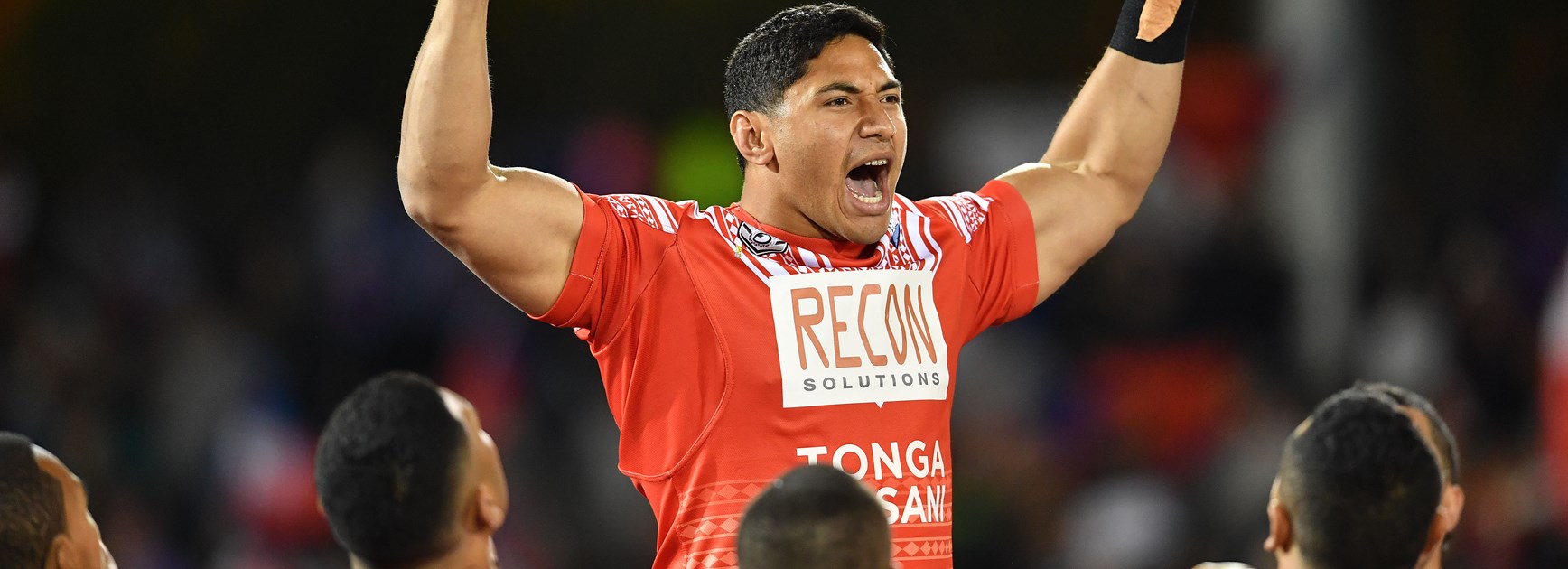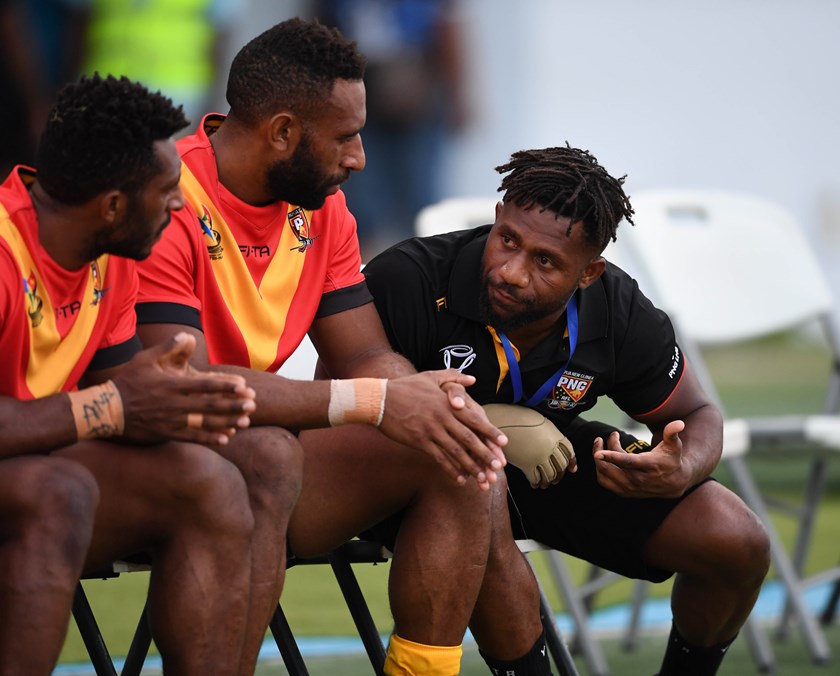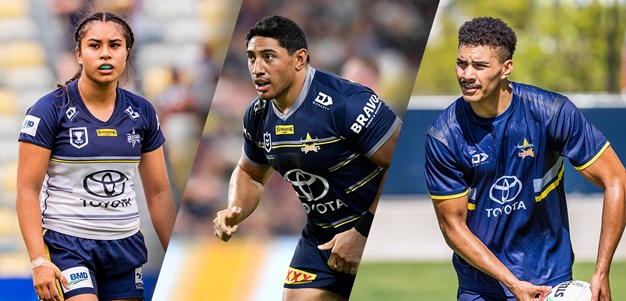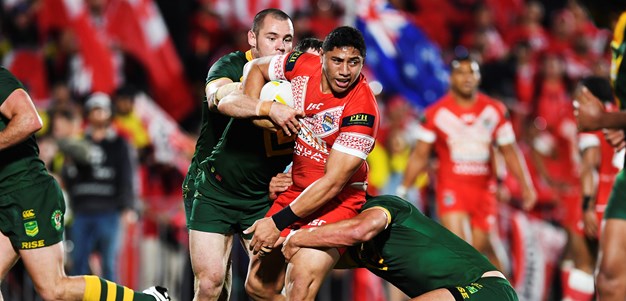
Pacific island nations filling three of the five finalist spots in the RLPA Representative Player of the Year category shows how the depth of the international game is moving offshore from the Tier One countries.
James Segeyaro (Papua New Guinea), Jason Taumalolo (Tonga) and Viliame Kikau (Fiji) join Australian starts Billy Slater and Valentine Holmes as the top-five players from Test matches during the 2017 World Cup and the 2018 Test weekend in June.
Unlike the other Tier One nations New Zealand and England, who played a mid-year Test in Denver, the Kangaroos have not played an international since their 6-0 triumph over England in December.
Consequently the Holden State of Origin series was included in the player voting this time – but only as a whole entity, not as three individual games.
The RLPA felt such a process was the fairest way to include as many international players as possible.
RLPA delegates from each nation voted for their opposition and not for players from their own country.
Previously the RLPA awards contained three categories for rep players: Australian Player of the Year, NZ Player of the Year, and Rest of the World Player.
But for the 2018 Players' Champion awards – to be presented at Doltone House in Sydney on September 11 – these three awards have been rolled into one.
REPRESENTATIVE PLAYER OF THE YEAR FINALISTS:
James Segeyaro (Papua New Guinea)
After causing a near-riot in September 2015 when he played for the Australian Prime Minister's XIII against his native PNG in Port Moresby, Segeyaro was back in the red, yellow, and black colours of his country in the 2017 World Cup.

He again sent the fans into delirium, when the Kumuls wrapped up their three pool games last November with a 64-0 win over the USA. The crafty hooker scored the 11th and last try for PNG. He was front and centre again in June in Sydney in PNG's upset 26-14 win over Fiji.
Viliame Kikau (Fiji)
Kikau played all five games for Fiji in the World Cup, scoring three tries as the Bati forced their way into the semi-finals for the first time. Kikau's speed and strength in the second row makes him a powerful edge player. His size and considerable ball skills made him a target for French rugby scouts when he played for the Fijian Schoolboys in the 15-man game in 2014, but thankfully the Cowboys grabbed him for rugby league. But he made his NRL debut with Penrith in 2017. He only played nine games for the Panthers, when the Bati named him in their World Cup side.
Jason Taumalolo (Tonga)
The 113kg lock is an impressive sight at the best of times but he caused a sensation when he said "No" to New Zealand last year after playing 10 matches, including the May 2017 Anzac Test in Canberra, to play for Tonga five months later. Taumalolo's "defection" was a big influence in Andrew Fifita – who played for Australia in that same Anzac Test – also swapping colours to the famous red jersey of his father's family. Tonga won four straight before losing to England in the semi-final. But the 28-22 win over the Kiwis in Hamilton, NZ, was a line in the sand for this emerging league nation. Taumalolo led the war cry that day, providing an everlasting image of Tongan passion.
Valentine Holmes (Australia)
He only played one of his six World Cup games for Australia at fullback, due to the presence of incumbent No.1 Billy Slater, but Holmes is just as damaging on the wing scoring 12 tries in those half-dozen appearances.

That broke Wendell Sailor's record of 10 tries for the Kangaroos in the 2000 World Cup. Holmes netted six tries against Fiji in the 54-6 semi-finals thumping. He is one of the best finishers in the game, posing a constant threat whenever he latches onto the ball.
Billy Slater (Australia)
Sadly the representative career of Slater has come to an end. But for his impact internationally, how does 27 tries in 30 Tests grab you? Specifically, for the 2017 World Cup - Slater's third for Australia – he scored five tries in five games. The final against England was the only match Slater didn't get across the line. But his kick returns, his relentless hunting around the ruck for the ball, and his raucous directions defensively from the fullback position, has made him a superstar. Fittingly, his 31st and final Origin game in July was as captain of the Maroons for the first time.














